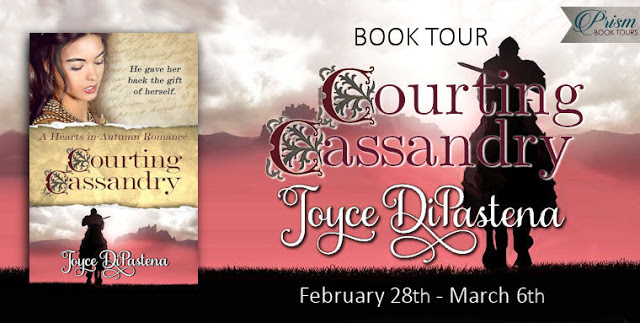Medieval Rules of Inheritance
by Joyce DiPastena
Sometimes well-meaning readers question the lines of inheritance in my medieval romances. More familiar with the popular and wide spread Regency romance, they assume that the strict rules of inheritance that basically disowned the rights of daughters during the Regency or even Victorian eras have always stood in England. This was not the case.
It is true that after the Norman Conquest of 1066, the law of primogeniture whereby the eldest son alone inherited a father’s lands became the common law in England. If the eldest son died, then the brother next in line stood to inherit, and so on down the line of brothers. The goal was to keep the main wealth contained in the inheritance (which usually equated with land) concentrated in the hands of one man, rather than continually dividing and thus diluting that inheritance among multiple sons, and grandsons, and great-grandsons, etc.
(sons inherited first because they could offer military service to their lord)
However, according to the common law of England during the Middle Ages, if all the sons died, or if there were no sons at all, the inheritance did not pass to the next collateral male relative (uncle, cousin, nephew) as it did during the Regency. If there were no sons or if all the sons died childless, then daughters were next in line to inherit.
(sisters could inherit if all their brothers died or if they had no brothers)
Thus women could and did inherit, at times, great wealth. Women, however, were considered incapable of managing and defending great tracts of land. Every man who held land owed fealty (military service) to some man of higher standing, with the men of highest standing owing fealty to the king himself. Since women could not participate in military service, some man had to perform this service on their behalf. An heiress, therefore, regardless of age, came under the guardianship of the man to whom her father or husband had owed fealty. This guardian had the power to choose a husband for the heiress who could perform the military responsibilities required in that day and age. The woman had no choice of whom she would marry, unless a particularly generous guardian, like the hero of Courting Cassandry, gave his assent to the marriage.
Joyce DiPastena dreamed of green medieval forests while growing up in the dusty copper mining town of Kearny, Arizona. She filled her medieval hunger by reading the books of Thomas B. Costain (where she fell in love with King Henry II of England), and later by attending the University of Arizona where she graduated with a degree in history, specializing in the Middle Ages. The university was also where she completed her first full-length novel…set, of course, in medieval England. Later, her fascination with Henry II led her to expand her research horizons to the far reaches of his “Angevin Empire” in France, which became the setting of her first published novel, Loyalty’s Web (a 2007 Whitney Award Finalist).







